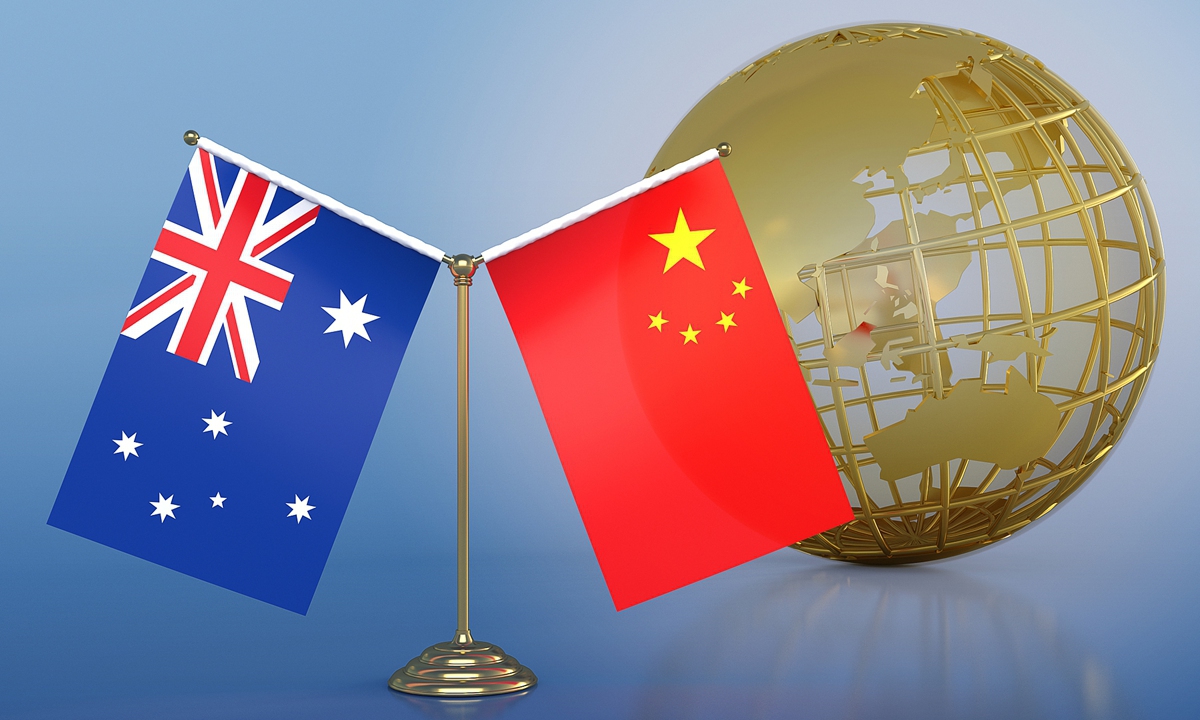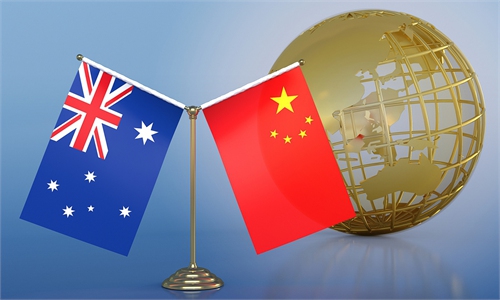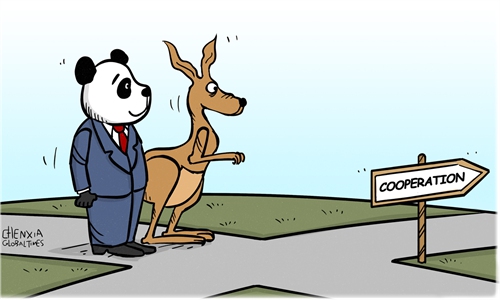Condition for canceling China’s anti-dumping tariffs on Australian wine 'not yet ripe'

China Australia Photo: CFP
As China-Australia ties continue to improve with increased official interactions, some in Australia are calling for a review in China's anti-dumping case against Australia's wine exports to China. But insiders at Chinese wine industry groups said on Thursday that they haven't heard of any plans to lower or cancel the tariffs.
The two countries have seen more interactions this year amid improving ties. On Thursday, Chinese Premier Li Qiang met with Australian Prime Minister Anthony Albanese on the sidelines of the leaders' meetings on East Asia cooperation held in Jakarta, Indonesia, the latest real-life example of growing exchanges between China and Australia.
China is ready to work with Australia to restart and resume bilateral exchanges in various fields, said Li, noting that a sound and stable bilateral relationship serves the fundamental interests and common aspirations of the two peoples, the Xinhua News Agency reported on Thursday.
The high-level meeting, which was a follow-up to a meeting of the two countries' leaders in Bali last November, and frequent interactions of the two sides at the business level this year, have fostered a good environment for the further improvement of economic and trade relations, experts said.
Amid improving bilateral ties, some in Australia are calling for a review on China's anti-dumping case against Australian wine initiated in March 2021. The case resulted in anti-dumping tariffs against Australian wines, which led to a sharp drop in Australia's wine exports to China, one of the biggest markets.
However, "there is no news of reducing or canceling tariffs on Australian wine," an insider at a Chinese wine industry group told the Global Times on Thursday on condition of anonymity.
"I believe that the conditions for resolving the Australian wine case have still not been met and it will take time before it is resolved," the person said.
Another insider told the Global Times that "unlike barley, wine is not a necessity and not irreplaceable. In terms of cost-effectiveness, Australian red wine lacks advantages. The urgency to remove tariffs is not high."
The wine industry, both globally and domestically, faces issues of oversupply.
China implemented a 5-year anti-dumping tariff on imported wines from Australia starting from March 28, 2021. Prior to this, Australia held a dominant position as the largest source of wine imports by China, surpassing even French wine.
After the tariffs were imposed, the market share of Australian wine in China became almost "negligible," the industry insider said, and communication and exchanges between some wine industry associations of both countries remain suspended.
Australian industry representatives have been increasingly prioritizing the Chinese market, which continues to hold significant importance in the global arena. They are channeling more investment and resources into this market to strengthen their presence, the Global Times learned.
In an exclusive written interview with the Global Times on Thursday, Penfolds Managing Director Tom King said that Treasury Wine Estates welcomes ongoing efforts to strengthen diplomatic, economic and cultural ties between Australia and China, including the company's participation in the Australian delegation to Beijing this week.
"China remains a very important market to Treasury Wine Estates and Penfolds. Over many years, we have built deep relationships with partners and customers, a robust supply chain and distribution infrastructure, and an unrivaled brand affinity with consumers," King said.
King said that the company continues to expand its global wine portfolio offering in China, which now includes multiple premium and luxury wines made locally as well as from other winemaking regions around the world such as California and Bordeaux.
China-Australia trade has recovered quickly as more Australian goods such as coal and beef are regaining popularity among Chinese buyers, and the resolution of the barley dispute exemplifies the joint efforts in pushing bilateral trade relations back on the right track.
In the first eight months of this year, bilateral trade amounted to 1.063 trillion yuan ($150 billion), a year-on-year increase of 11.4 percent, data that the General Administration of Customs released on Thursday showed.
Trade relations have always been the cornerstone of the China-Australia relationship, Chen Hong, president of the Chinese Association of Australian Studies, told the Global Times on Thursday.
Despite the challenges the bilateral relationship has faced in the past two years, trade relations remain at a relatively high level and resilient, due to the strong complementarity of economic cooperation between the two countries, Chen said. China is a massive market, while Australia is a long-term and stable supplier of minerals and energy, forming a strong interdependence between the two sides.
"With mutual efforts, recent trade disputes related to barley have been largely resolved, and we believe more trade issues will also be addressed in the future," Chen said.



